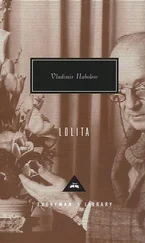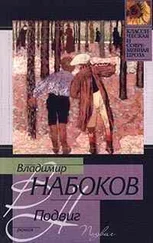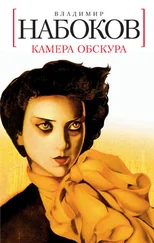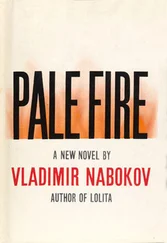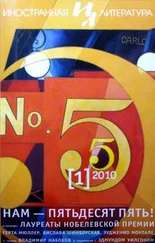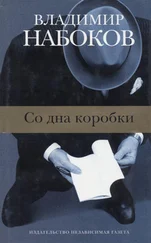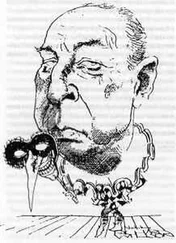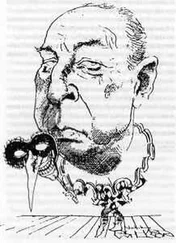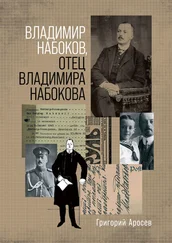Владимир Набоков - Ada, or Ador - A Family Chronicle
Здесь есть возможность читать онлайн «Владимир Набоков - Ada, or Ador - A Family Chronicle» весь текст электронной книги совершенно бесплатно (целиком полную версию без сокращений). В некоторых случаях можно слушать аудио, скачать через торрент в формате fb2 и присутствует краткое содержание. Жанр: Классическая проза, Современные любовные романы, на английском языке. Описание произведения, (предисловие) а так же отзывы посетителей доступны на портале библиотеки ЛибКат.
- Название:Ada, or Ador: A Family Chronicle
- Автор:
- Жанр:
- Год:неизвестен
- ISBN:нет данных
- Рейтинг книги:3 / 5. Голосов: 1
-
Избранное:Добавить в избранное
- Отзывы:
-
Ваша оценка:
- 60
- 1
- 2
- 3
- 4
- 5
Ada, or Ador: A Family Chronicle: краткое содержание, описание и аннотация
Предлагаем к чтению аннотацию, описание, краткое содержание или предисловие (зависит от того, что написал сам автор книги «Ada, or Ador: A Family Chronicle»). Если вы не нашли необходимую информацию о книге — напишите в комментариях, мы постараемся отыскать её.
Ada, or Ador: A Family Chronicle — читать онлайн бесплатно полную книгу (весь текст) целиком
Ниже представлен текст книги, разбитый по страницам. Система сохранения места последней прочитанной страницы, позволяет с удобством читать онлайн бесплатно книгу «Ada, or Ador: A Family Chronicle», без необходимости каждый раз заново искать на чём Вы остановились. Поставьте закладку, и сможете в любой момент перейти на страницу, на которой закончили чтение.
Интервал:
Закладка:
His heart missed a beat and never regretted the lovely loss, as she ran, flushed and flustered, in a pink dress into the orchard, earning a claque third of the sitting ovation that greeted the instant dispersal of the imbecile but colorful transfigurants from Lyaska — or Iveria. Her meeting with Baron O., who strolled out of a side alley, all spurs and green tails, somehow eluded Demon’s consciousness, so struck was he by the wonder of that brief abyss of absolute reality between two bogus fulgurations of fabricated life. Without waiting for the end of the scene, he hurried out of the theater into the crisp crystal night, the snowflakes star-spangling his top hat as he returned to his house in the next block to arrange a magnificent supper. By the time he went to fetch his new mistress in his jingling sleigh, the last-act ballet of Caucasian generals and metamorphosed Cinderellas had come to a sudden close, and Baron d’O., now in black tails and white gloves, was kneeling in the middle of an empty stage, holding the glass slipper that his fickle lady had left him when eluding his belated advances. The claqueurs were getting tired and looking at their watches when Marina in a black cloak slipped into Demon’s arms and swan-sleigh.
They reveled, and traveled, and they quarreled, and flew back to each other again. By the following winter he began to suspect she was being unfaithful to him, but could not determine his rival. In mid-March, at a business meal with an art expert, an easy-going, lanky, likeable fellow in an old-fashioned dress-coat, Demon screwed in his monocle, unclicked out of its special flat case a small pen-and-wash and said he thought (did not doubt, in fact, but wished his certitude to be admired) that it was an unknown product of Parmigianino’s tender art. It showed a naked girl with a peach-like apple cupped in her half-raised hand sitting sideways on a convolvulus-garlanded support, and had for its discoverer the additional appeal of recalling Marina when, rung out of a hotel bathroom by the phone, and perched on the arm of a chair, she muffled the receiver while asking her lover something that he could not make out because the bath’s voice drowned her whisper. Baron d’Onsky had only to cast one glance at that raised shoulder and at certain vermiculated effects of delicate vegetation to confirm Demon’s guess. D’Onsky had the reputation of not showing one sign of esthetic emotion in the presence of the loveliest masterpiece; this time, nonetheless, he laid his magnifier aside as he would a mask, and allowed his undisguised gaze to caress the velvety apple and the nude’s dimpled and mossed parts with a smile of bemused pleasure. Would Mr Veen consider selling it to him there and then, Mr Veen, please? Mr Veen would not. Skonky (a oneway nickname) must content himself with the proud thought that, as of today, he and the lucky owner were the sole people to have ever admired it en connaissance de cause. Back it went into its special integument; but after finishing his fourth cup of cognac, d’O. pleaded for one last peep. Both men were a little drunk, and Demon secretly wondered if the rather banal resemblance of that Edenic girl to a young actress, whom his visitor had no doubt seen on the stage in ‘Eugene and Lara’ or ‘Lenore Raven’ (both painfully panned by a ‘disgustingly incorruptible’ young critic), should be, or would be, commented upon. It was not: such nymphs were really very much alike because of their elemental limpidity since the similarities of young bodies of water are but murmurs of natural innocence and double-talk mirrors, that’s my hat, his is older, but we have the same London hatter.
Next day Demon was having tea at his favorite hotel with a Bohemian lady whom he had never seen before and was never to see again (she desired his recommendation for a job in the Glass Fish-and-Flower department in a Boston museum) when she interrupted her voluble self to indicate Marina and Aqua, blankly slinking across the hall in modish sullenness and bluish furs with Dan Veen and a dackel behind, and said:
‘Curious how that appalling actress resembles "Eve on the Clepsydrophone" in Parmigianino’s famous picture.’
‘It is anything but famous,’ said Demon quietly, ‘and you can’t have seen it. I don’t envy you,’ he added; ‘the naive stranger who realizes that he or she has stepped into the mud of an alien life must experience a pretty sickening feeling. Did you get that small-talk information directly from a fellow named d’Onsky or through a friend of a friend of his?’
‘Friend of his,’ replied the hapless Bohemian lady.
Upon being questioned in Demon’s dungeon, Marina, laughing trillingly, wove a picturesque tissue of lies; then broke down, and confessed. She swore that all was over; that the Baron, a physical wreck and a spiritual Samurai, had gone to Japan forever. From a more reliable source Demon learned that the Samurai’s real destination was smart little Vatican, a Roman spa, whence he was to return to Aardvark, Massa, in a week or so. Since prudent Veen preferred killing his man in Europe (decrepit but indestructible Gamaliel was said to be doing his best to forbid duels in the Western Hemisphere — a canard or an idealistic President’s instant-coffee caprice, for nothing was to come of it after all), Demon rented the fastest petroloplane available, overtook the Baron (looking very fit) in Nice, saw him enter Gunter’s Bookshop, went in after him, and in the presence of the imperturbable and rather bored English shopkeeper, back-slapped the astonished Baron across the face with a lavender glove. The challenge was accepted; two native seconds were chosen; the Baron plumped for swords; and after a certain amount of good blood (Polish and Irish — a kind of American ‘Gory Mary’ in barroom parlance) had bespattered two hairy torsoes, the whitewashed terrace, the flight of steps leading backward to the walled garden in an amusing Douglas d’Artagnan arrangement, the apron of a quite accidental milkmaid, and the shirtsleeves of both seconds, charming Monsieur de Pastrouil and Colonel St Alin, a scoundrel, the latter gentlemen separated the panting combatants, and Skonky died, not ‘of his wounds’ (as it was viciously rumored) but of a gangrenous afterthought on the part of the least of them, possibly self-inflicted, a sting in the groin, which caused circulatory trouble, notwithstanding quite a few surgical interventions during two or three years of protracted stays at the Aardvark Hospital in Boston — a city where, incidentally, he married in 1869 our friend the Bohemian lady, now keeper of Glass Biota at the local museum.
Marina arrived in Nice a few days after the duel, and tracked Demon down in his villa Armina, and in the ecstasy of reconciliation neither remembered to dupe procreation, whereupon started the extremely interesnoe polozhenie (‘interesting condition’) without which, in fact, these anguished notes could not have been strung.
(Van, I trust your taste and your talent but are we quite sure we should keep reverting so zestfully to that wicked world which after all may have existed only oneirologically, Van? Marginal jotting in Ada’s 1965 hand; crossed out lightly in her latest wavering one.)
That reckless stage was not the last but the shortest — a matter of four or five days. He pardoned her. He adored her. He wished to marry her very much — on the condition she dropped her theatrical’ career’ at once. He denounced the mediocrity of her gift and the vulgarity of her entourage, and she yelled he was a brute and a fiend. By April 10 it was Aqua who was nursing him, while Marina had flown back to her rehearsals of ‘Lucile,’ yet another execrable drama heading for yet another flop at the Ladore playhouse.
‘Adieu. Perhaps it is better thus,’ wrote Demon to Marina in mid-April, 1869 (the letter may be either a copy in his calligraphic hand or the unposted original), ‘for whatever bliss might have attended our married life, and however long that blissful life might have lasted, one image I shall not forget and will not forgive. Let it sink in, my dear. Let me repeat it in such terms as a stage performer can appreciate. You had gone to Boston to see an old aunt — a cliché, but the truth for the nonce — and I had gone to my aunt’s ranch near Lolita, Texas. Early one February morning (around noon chez vous) I rang you up at your hotel from a roadside booth of pure crystal still tear-stained after a tremendous thunderstorm to ask you to fly over at once, because I, Demon, rattling my crumpled wings and cursing the automatic dorophone, could not live without you and because I wished you to see, with me holding you, the daze of desert flowers that the rain had brought out. Your voice was remote but sweet; you said you were in Eve’s state, hold the line, let me put on a penyuar. Instead, blocking my ear, you spoke, I suppose, to the man with whom you had spent the night (and whom I would have dispatched, had I not been overeager to castrate him). Now that is the sketch made by a young artist in Parma, in the sixteenth century, for the fresco of our destiny, in a prophetic trance, and coinciding, except for the apple of terrible knowledge, with an image repeated in two men’s minds. Your runaway maid, by the way, has been found by the police in a brothel here and will be shipped to you as soon as she is sufficiently stuffed with mercury.’
Читать дальшеИнтервал:
Закладка:
Похожие книги на «Ada, or Ador: A Family Chronicle»
Представляем Вашему вниманию похожие книги на «Ada, or Ador: A Family Chronicle» списком для выбора. Мы отобрали схожую по названию и смыслу литературу в надежде предоставить читателям больше вариантов отыскать новые, интересные, ещё непрочитанные произведения.
Обсуждение, отзывы о книге «Ada, or Ador: A Family Chronicle» и просто собственные мнения читателей. Оставьте ваши комментарии, напишите, что Вы думаете о произведении, его смысле или главных героях. Укажите что конкретно понравилось, а что нет, и почему Вы так считаете.

